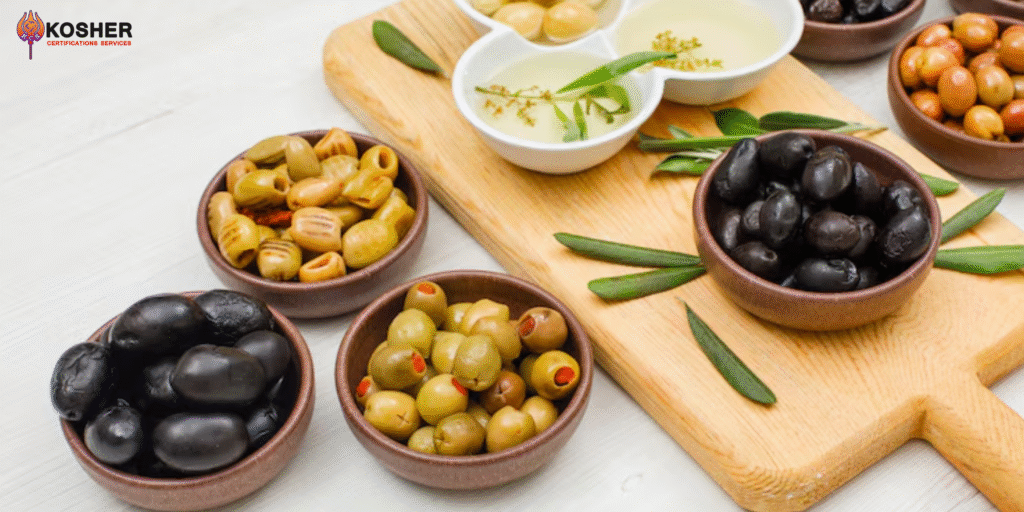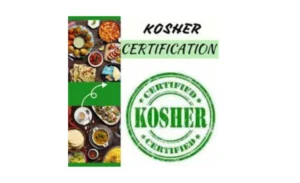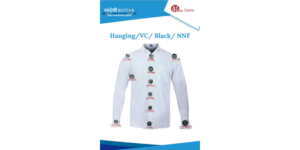Why Kosher Certification Matters: A Guide for Consumers and Businesses

Kosher Certification
Have you ever spotted a small “U” or “K” symbol on a Kosher Certification food label and wondered what it means? That tiny mark carries big meaning — it’s a sign that the product is kosher certified. But kosher certification isn’t just a concern for people following Jewish dietary laws. It’s also a mark of food quality, careful production, and trust. Whether you’re a consumer or a food producer, understanding kosher certification can help you make informed choices and expand opportunities.
Kosher Certification Basics: What Does It Mean?
The term “kosher” comes from the Hebrew word kasher, meaning “fit” or “appropriate.” In food terms, it refers to items prepared in accordance with Jewish dietary laws. These laws are part of kashrut, a system of rules that governs what foods can be eaten and how they must be handled.
Here are a few key points of kosher law:
-
Only certain animals are allowed (e.g., cows and chickens are kosher; pigs and shellfish are not)
-
Meat and dairy cannot be mixed
-
Animals must be slaughtered in a specific, humane manner
-
Cooking equipment and utensils must also remain kosher
Given the detailed nature of these rules, most food producers seek certification from a kosher agency to verify compliance.
What Is Kosher Certification?
Kosher Certification is a formal process through which a product or facility is reviewed and approved by a trusted religious authority. Once certified, a product carries a kosher symbol — called a hechsher — on its packaging. This assures consumers that the food meets kosher dietary standards.
Kosher certification agencies are responsible for inspecting ingredients, reviewing food handling practices, and conducting on-site facility visits. After passing inspection, the agency grants a certificate and allows the business to use their kosher mark.
Steps in the Certification Process
Getting kosher certified is not just a one-time event. It’s a structured and ongoing process:
-
Application: The food manufacturer contacts a kosher certification agency.
-
Ingredient Review: All ingredients and additives are checked for compliance.
-
Facility Inspection: A trained kosher supervisor inspects production equipment and processes.
-
Certification: If everything checks out, the product receives a kosher symbol.
-
Ongoing Monitoring: The certifying agency makes periodic inspections to ensure continued compliance.
This system ensures that kosher-certified products maintain their status long after the initial approval.
Who Benefits from Kosher Certification?
While Kosher Certification is essential for Jewish consumers, it also benefits a much broader audience. People with dietary preferences, allergies, or religious concerns often choose kosher foods for the added layer of trust and transparency. For example:
-
Vegetarians often prefer products labeled “pareve,” meaning they contain no meat or dairy.
-
Muslim consumers sometimes purchase kosher-certified food when halal options aren’t available.
-
Health-conscious individuals trust kosher products because of the strict hygiene and inspection practices involved.
From a business perspective, kosher certification offers access to wider markets, particularly in regions like North America, Europe, and Israel.
Business Advantages of Kosher Certification
If you’re a food manufacturer, obtaining kosher certification can unlock many benefits:
-
Expanded Market Access: Reach Jewish communities and health-conscious shoppers worldwide.
-
Competitive Edge: Differentiate your brand with a trusted, recognized quality standard.
-
Improved Food Safety: The certification process promotes cleanliness and consistency.
-
Brand Credibility: Consumers associate kosher marks with thorough inspection and care.
In competitive industries, having a kosher label can be the deciding factor for large buyers, distributors, and even government contracts.
Common Kosher Symbols to Look For
There are many Kosher Certification agencies, each with its own symbol. Some of the most widely recognized include:
-
OU (Orthodox Union) – A circle with a “U” inside, among the most trusted symbols.
-
OK, KOF-K, STAR-K – Also widely accepted and respected.
-
D or Dairy – Indicates the product contains dairy.
-
Pareve – Free of meat and dairy, suitable for many diets.
-
P (Passover) – Suitable for consumption during Passover, when leavened grains are not allowed.
Always check the symbol carefully, especially if you are buying for someone who keeps kosher.
Conclusion: More Than Just a Religious Label
Kosher certification is often misunderstood as a niche concern, but it plays a major role in the global food industry. For manufacturers, it represents an opportunity to improve standards and grow their audience. For consumers, it’s a mark of transparency, trust, and thoughtful production.
So, the next time you spot a kosher symbol on your food, know that it stands for more than just religious approval — it represents a commitment to quality that benefits everyone.

